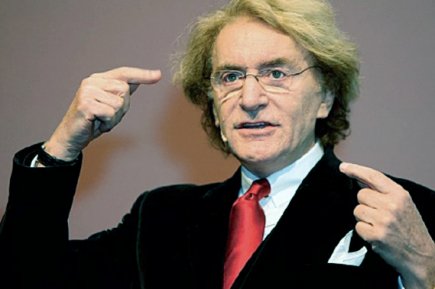Last week, brands’ psychoanalyst (sometimes referred as cultural anthropologist) Clotaire Rapaille was fired by the Quebec City mayor Regis Labeaume from his role as a brand management (image) consultant for the city because mainly of curriculum vitae falsifications. The news arrived more than a month after being hired to a $300,000 3-month contract to propose a branding plan for Quebec City. By trying to push too far his own marketing, Clotaire Rapaille completely violated the fundamental principles of personal branding and lost a portion of his credibility. When reading all these stories about Rapaille, one question came off the top of my head: Is Clotaire Rapaille feeding or failing marketing?

Why is Clotaire Rapaille feeding marketing?
By qualifying himself as an anthropologist, Clotaire Rapaille first reminds me cultural anthropologist Grant McCracken who to my limited knowledge in this field, was one of the first high-end anthropologist marketing consultant to sign lucrative consulting contracts with multinationals (Coca-Cola Company, Diageo, IBM, IKEA, Chrysler, Kraft, and Kimberly Clark). Perhaps the hiring of Clotaire Rapaille is the sign pointing the beginning of an era of lucrative consulting contracts for marketers’ anthropologists. On the academic side, this hiring could reinforce the appeal of cultural anthropology in marketing at the undergraduate and MBA-level, a field led by the York University crew (Russell W. Belk, Eileen Fischer, Robert Kozinets & Detlev Zwick) and growing in importance in the Montreal area (Zeynep Arsel and Annamma Joy at Concordia University and Jonathan Deschênes, Jean-Sébastien Marcoux, Marie-Agnès Parmentier, Yannik St-James at HEC Montréal) and especially at HEC Montréal.
Why is Clotaire Rapaille failing marketing?
By being fired from his consulting contract with Quebec City, Clotaire Rapaille makes marketing sounds like magic in the eyes of the populace, which is completely false. Surely, marketing is not a hard science at the same level as pure mathematics. However, marketers are not magicians or should not claim to be, let magic to mindfreak like Criss Angel. The discipline takes its roots in psychology, anthropology, statistics, economics and computer science, which creates a sexy melting pot. The “science” of marketing is based on empirical generalizations, strong conceptual frameworks and learning-by-doing case studies that lead to best practices.

Conclusion
Briefly, one sure thing is that Clotaire Rapaille is a good example of a personal branding failure. However, the Clotaire Rapaille personal branding failure has had negative and positive spillover effects for all those working in the field of marketing in the province of Quebec and perhaps even in North America. What do you think? Any other comments?
Jean-Francois Belisle
